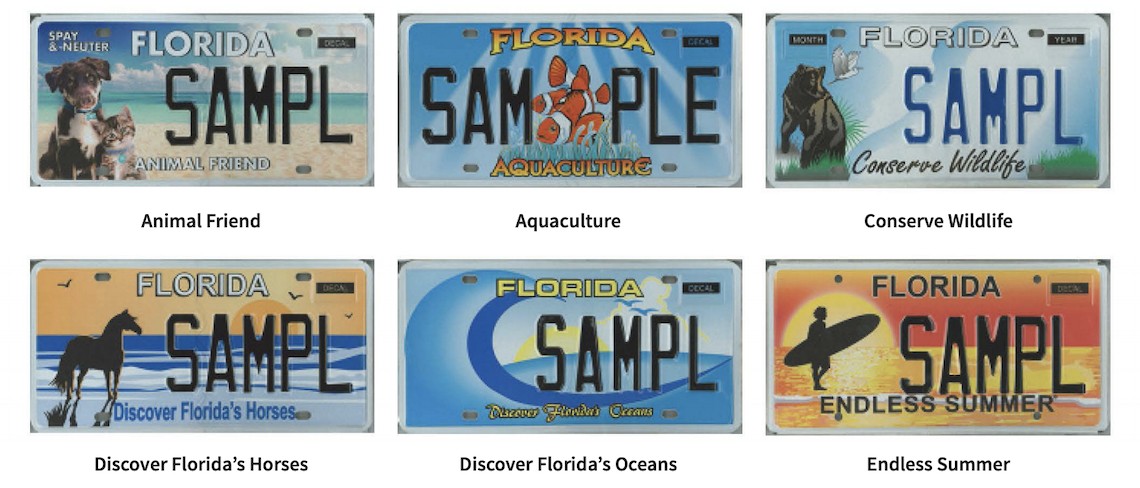Buying a car in Florida, whether it’s a brand-new model or a reliable used vehicle, is an exciting step. However, beyond the sticker price, it’s crucial to understand the additional costs involved, and sales tax is a significant one. As a car owner in the Sunshine State, you’ll need to factor in registration fees, title fees, and of course, sales tax. This guide will break down everything you need to know about Sales Tax On Cars In Florida, ensuring you’re fully prepared when making your purchase.
Decoding Florida’s Car Sales Tax
Florida, like many other states, levies a sales tax on vehicle purchases. This tax is calculated based on the vehicle’s full purchase price, whether you’re buying new or used. The base sales tax rate in Florida is set at 6%. To stay updated with any potential changes, always refer to the Florida Department of Revenue, the official source for the most current sales tax information.
If you’re purchasing a vehicle from outside of Florida or comparing rates with other states, remember to check with the respective Department of Revenue for accurate figures. Furthermore, keep in mind that some states may include additional fees like inspection or documentation charges when buying a car. Dealerships might also add their own fees when you purchase a vehicle through them.
Calculating Florida Car Sales Tax: An Example
To determine the sales tax on a car in Florida, the calculation is straightforward. Simply multiply the car’s purchase price by the state sales tax rate of 6%.
For example, if you’re buying a car with a purchase price of $20,000, the sales tax would be calculated as follows:
$20,000 (Purchase Price) x 0.06 (Sales Tax Rate) = $1,200 (Sales Tax Owed)
Therefore, on a $20,000 car, you would owe $1,200 in sales tax in Florida, excluding any other potential surtaxes.
Discretionary Sales Surtaxes: County-Specific Rates
While the base sales tax rate in Florida is 6%, some counties impose an additional discretionary sales surtax. This surtax is added on top of the state’s 6% sales tax, meaning residents in these counties will pay a higher total sales tax rate on their vehicle purchase.
Hillsborough County, for instance, is known to have one of the highest total surtax rates in Florida, reaching up to 2.5%. As one of Florida’s most populous counties, this additional surtax significantly increases the overall tax burden for car buyers there. With a 2.5% discretionary surtax added to the 6% state sales tax, the total sales tax rate in Hillsborough County can climb to 8.5%.
This high surtax in Hillsborough County is a combination of several smaller surtaxes enacted over time, including surtaxes for transportation, schools, indigent health care, and local government infrastructure.
For a comprehensive list of Florida counties that levy a discretionary surtax and their specific tax rates, you can consult the official document provided by the Florida Department of Revenue: Discretionary Sales Surtax Rates.
 Image of Florida specialty license plates showcasing various designs and options
Image of Florida specialty license plates showcasing various designs and options
Essential Costs Beyond Sales Tax When Buying a Car in Florida
When budgeting for a car purchase in Florida, remember that sales tax is just one piece of the puzzle. Several other fees contribute to the total cost of vehicle ownership. Planning for these expenses upfront will help avoid surprises.
Here’s a breakdown of common additional costs:
- Title Fee: A car title proves your legal ownership of the vehicle. You’ll typically receive this document during the car buying process, often from the dealer. In Florida, the title fee is typically around $75.75.
- Registration Fees: Vehicle registration fees in Florida vary depending on the type and size of your vehicle. The initial registration fee starts at approximately $225, but can increase for larger vehicles.
- License Plates and Tags: Florida offers a wide array of license plate options, including standard plates and over 120 specialty license plates that support various organizations and causes. Specialty plates, which allow you to “Protect Our Reefs” or “Fish Florida!”, or support Florida universities, come with additional fees.
To pay these fees, it’s recommended to contact your local Florida Department of Motor Vehicles (DMV) directly. It’s also wise to research the overall cost of car ownership, including auto insurance costs for your new vehicle.
Sales Tax Implications for Out-of-State Car Purchases
Even if you purchase your car outside of Florida but intend to register and use it within the state, you’re still obligated to pay Florida car sales tax. In this scenario, it’s termed a “use tax,” and the rate remains at six percent. However, Florida offers a credit for any local sales taxes you might have already paid in the state where you bought the vehicle.
If the sales tax you paid in the other state is equal to or greater than Florida’s 6% sales tax, you won’t owe any further sales tax to Florida. Conversely, if the other state’s sales tax was lower than Florida’s, you’ll only need to pay the difference to Florida, in addition to any applicable discretionary surtax in your Florida county.
Exploring Florida Car Sales Tax Exemptions
Certain situations qualify for exemptions from Florida’s car sales tax. These exemptions can significantly reduce the cost of purchasing a vehicle for eligible individuals and entities.
Here are some key Florida sales tax exemptions:
- Dealers Buying for Resale or Lease: Registered car dealers who purchase vehicles for resale or leasing purposes are exempt from sales tax.
- Out-of-State Delivery: If you buy a vehicle in Florida and the dealer delivers it to you outside of the state, the purchase is exempt from Florida sales tax.
- Vehicles Shipped for Export: Vehicles purchased in Florida and shipped out of the country via a licensed exporter or freight forwarder are also exempt from sales tax.
- Exempt Entities with DR-14 Form: Entities holding a Florida form DR-14 (Consumer’s Certificate of Exemption) are exempt from sales tax when purchasing a motor vehicle.
- Out-of-State Dealers Buying for Resale/Lease: Car dealers from outside Florida without Florida sales tax numbers are exempt when buying vehicles for resale or lease.
Trade-In Sales Tax Reductions
Florida offers a sales tax exemption for certain trade-in scenarios between private individuals. When two individuals trade vehicles directly (without a dealership involved) and exchange one motor vehicle for another (car, motorcycle, mobile home, aircraft, or boat), a trade-in allowance can be deducted from the taxable sales price, reducing the sales tax due. Crucially, no money can change hands in these trade-in transactions to qualify for the sales tax deduction.
Loaned Vehicle Sales Tax Exemption
Loaned vehicles may also be exempt from sales tax in Florida. This includes vehicles loaned to high schools or educational institutions for driver’s education programs. These loaned vehicles must have specific license plates indicating their loan status. Additionally, vehicles loaned to individuals while their own cars are being repaired are considered loaners and may also qualify for exemption.
Understanding the nuances of sales tax on cars in Florida is essential for any car buyer in the state. By being aware of the base rate, potential county surtaxes, additional fees, and available exemptions, you can make informed decisions and budget accurately for your vehicle purchase. Always consult official sources like the Florida Department of Revenue for the most up-to-date information.
